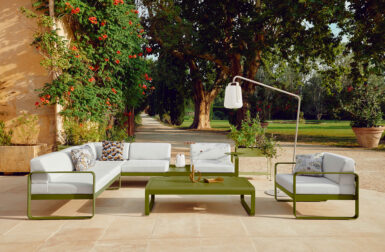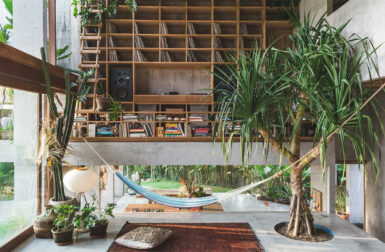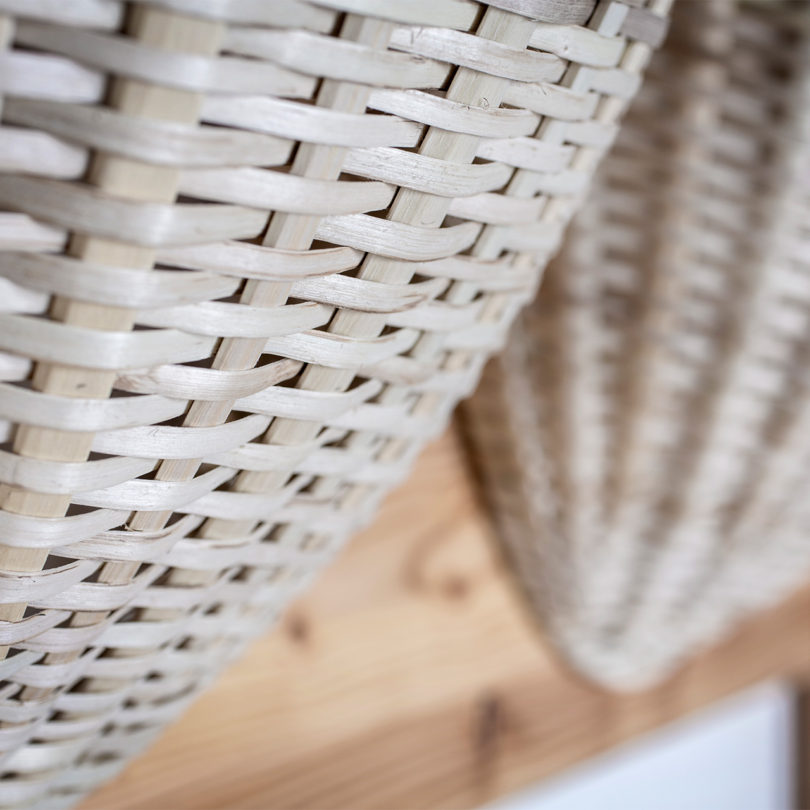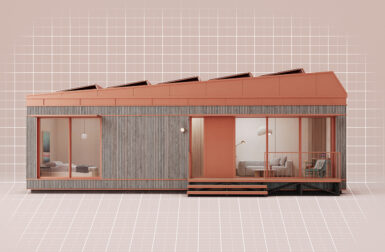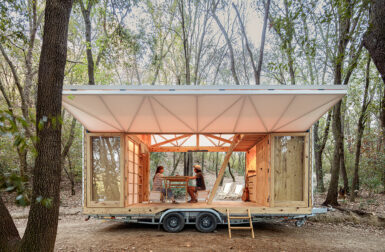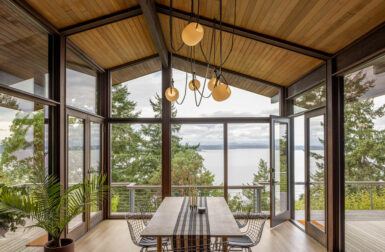‘Traditional as radical’ was the title of Sebastian Cox’s Master’s thesis in 2010, and it’s a phrase he’s recently revived as the strapline for his British furniture design business. But what does it mean? “I explored coppiced hazel as part of my master’s degree in sustainable design at Lincoln University,” he explains. “I was using this ancient means of woodland management to create contemporary, designed objects with the potential to change the way people engage with the materials they choose to furnish their homes.”
When he was studying, bamboo was all the rage due to its sustainability – it is fast-growing and self-replenishing, but having grown up amongst British woodlands, Cox couldn’t help but wonder if the trees on our doorsteps couldn’t offer the same environmental credentials. “I can remember thinking, I’m sure coppicing produces the same result,” he says.
Forests in Britain have been coppiced for thousands of years, and whole ecosystems of flowers, insects and birds have evolved to live in these unique habitats. Hazel coppicing involves felling trees every 14 years. They regrow and, as long as they are coppiced, will never die of old age. One fourteenth of the wood is cut each year, so there are always trees ready to be harvested. But a decline in woodland management over the past 50 years, owing to the falling value of British timber, has seen a parallel decline in these species.
“Traditional as radical means that we don’t leave the historical, traditional or ancient behind because we want to move forwards,” he says. “We actively use it in order to make radical changes in our material culture. Take wood – wood is an ancient material, and yet if we were to design the perfect material of the future it would be naturally self-replenishing, it would absorb all the carbon dioxide out of the atmosphere, it would produce the oxygen we need to breath, it would be completely biodegradable, it would be available in different colors with different material properties. That’s wood!”
“I really believe that many of the material challenges we face in society can be overcome by combining an ancient approach to materials and design, with the amazing technological and scientific advances of today.”
For seven years, the Sebastian Cox workshop and studio (which now employs a team of five – six, if you count Willow, the dog) has stayed true to this principle, using traditional ideas to make contemporary furniture that challenges the way we consume furniture – and think about woodlands.
It’s an approach that has seen them become increasingly in demand. After Kevin McCloud, the presenter of Channel 4’s Grand Designs, called Cox “a true adventurer” and their oak and coppiced hazel Suent Superlight chair won Outstanding Design at the National Wood Awards; they have called upon to make everything from a cocooned home office space for Sir Terence Conran, which was exhibited at London’s Victoria and Albert Museum, to a hot air balloon basket as part of an installation at Heathrow airport for British fashion label Burberry. They have also designed a kitchen for deVOL and a collectible drinks trolley for whiskey brand The Glenlivet, among many other collaborations and commissions.
The workshop’s own collections include Underwood, in which table and chair legs are made from straight hazel branches left ‘in the round’ with their bark intact, and Bayleaf, which features woven English ash in oak frames inspired by medieval houses. A range of chopping boards, hand-turned bowls, and even fire briquettes ensure that nothing goes to waste.
That’s the thing about Cox – you get the sense that if you cut him in half, the words ‘sustainable British wood’ would be written right through him like a stick of rock. “The thing is, I really mean it,” he says earnestly. “The things I talk about aren’t part of a story I’ve concocted to sell furniture. If I wasn’t a furniture maker, I would be working in forestry educating the public about the importance of woodland management, or in forestry policy. Everything I do is shaped by a genuine love of wood.” And with that attitude, you can’t help but wish him every success.
